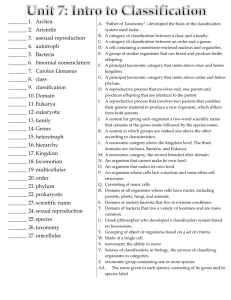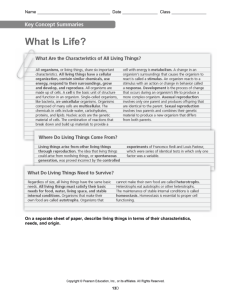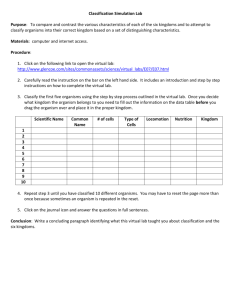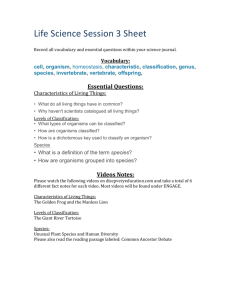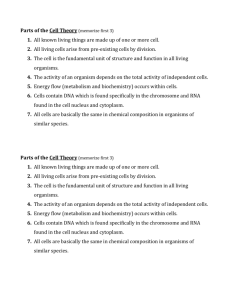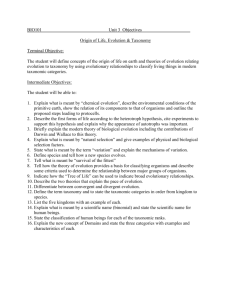Classification and Kingdoms Biology Terms
advertisement
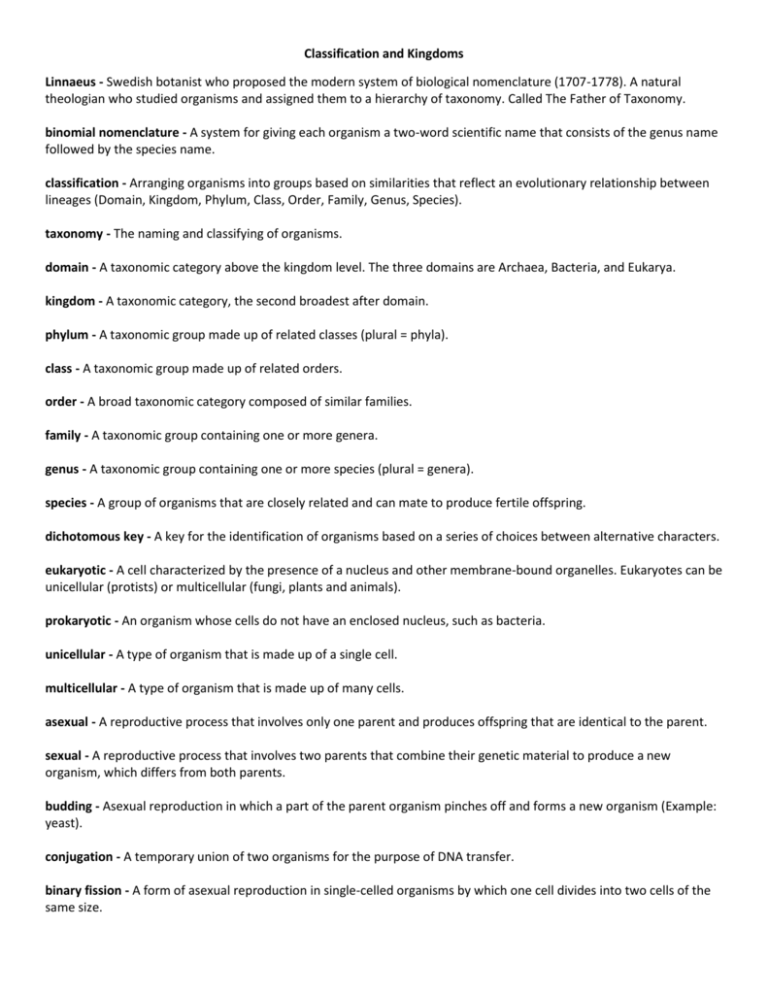
Classification and Kingdoms Linnaeus - Swedish botanist who proposed the modern system of biological nomenclature (1707-1778). A natural theologian who studied organisms and assigned them to a hierarchy of taxonomy. Called The Father of Taxonomy. binomial nomenclature - A system for giving each organism a two-word scientific name that consists of the genus name followed by the species name. classification - Arranging organisms into groups based on similarities that reflect an evolutionary relationship between lineages (Domain, Kingdom, Phylum, Class, Order, Family, Genus, Species). taxonomy - The naming and classifying of organisms. domain - A taxonomic category above the kingdom level. The three domains are Archaea, Bacteria, and Eukarya. kingdom - A taxonomic category, the second broadest after domain. phylum - A taxonomic group made up of related classes (plural = phyla). class - A taxonomic group made up of related orders. order - A broad taxonomic category composed of similar families. family - A taxonomic group containing one or more genera. genus - A taxonomic group containing one or more species (plural = genera). species - A group of organisms that are closely related and can mate to produce fertile offspring. dichotomous key - A key for the identification of organisms based on a series of choices between alternative characters. eukaryotic - A cell characterized by the presence of a nucleus and other membrane-bound organelles. Eukaryotes can be unicellular (protists) or multicellular (fungi, plants and animals). prokaryotic - An organism whose cells do not have an enclosed nucleus, such as bacteria. unicellular - A type of organism that is made up of a single cell. multicellular - A type of organism that is made up of many cells. asexual - A reproductive process that involves only one parent and produces offspring that are identical to the parent. sexual - A reproductive process that involves two parents that combine their genetic material to produce a new organism, which differs from both parents. budding - Asexual reproduction in which a part of the parent organism pinches off and forms a new organism (Example: yeast). conjugation - A temporary union of two organisms for the purpose of DNA transfer. binary fission - A form of asexual reproduction in single-celled organisms by which one cell divides into two cells of the same size. autotrophic - An organism that is able to make its own food ("self-feeder"). heterotrophic - An organism that cannot make its own food ("other feeder"). protists - Unicellular, multicellular, or colonial eukaryote whose cell walls may contain cellulose; can be plantlike, animal-like, or funguslike. Bacteria - A domain of single-celled or noncellular spherical, spiral or rod-shaped organisms lacking chlorophyll that reproduce by binary fission. Archaea - A domain of prokaryotes that are single-celled and live in extreme environments; they are also known as extremophiles. Eubacteria - A kingdom that contains all prokaryotes except archaebacteria. fungi - A kingdom made up of nongreen, eukaryotic organisms that have no means of movement, reproduce by using spores, and get food by breaking down substances in their surroundings and absorbing the nutrients plants - A multicelled photoautotroph, most with well-developed roots and shoots (e.g., stems, leaves), as well as photosynthetic cells that include starch grains as well as chlorophylls a and b, and polysaccharides such as cellulose, pectin, and lignin in cell walls. The primary producers on land. animals - Any multicelled heterotroph that ingests other organisms or their tissues, develops through a series of embryonic stages, and is motile during part or all of the life cyle. Most species have epithelial tissues and extracellular matrixes. archaebacteria - A group of microorganisms whose cell walls do not contain peptidoglycan and that typically live in extremely harsh environments. Eukaryota - A domain of organisms that contain nuclei, includes animals, plants, fungi, and protists.

